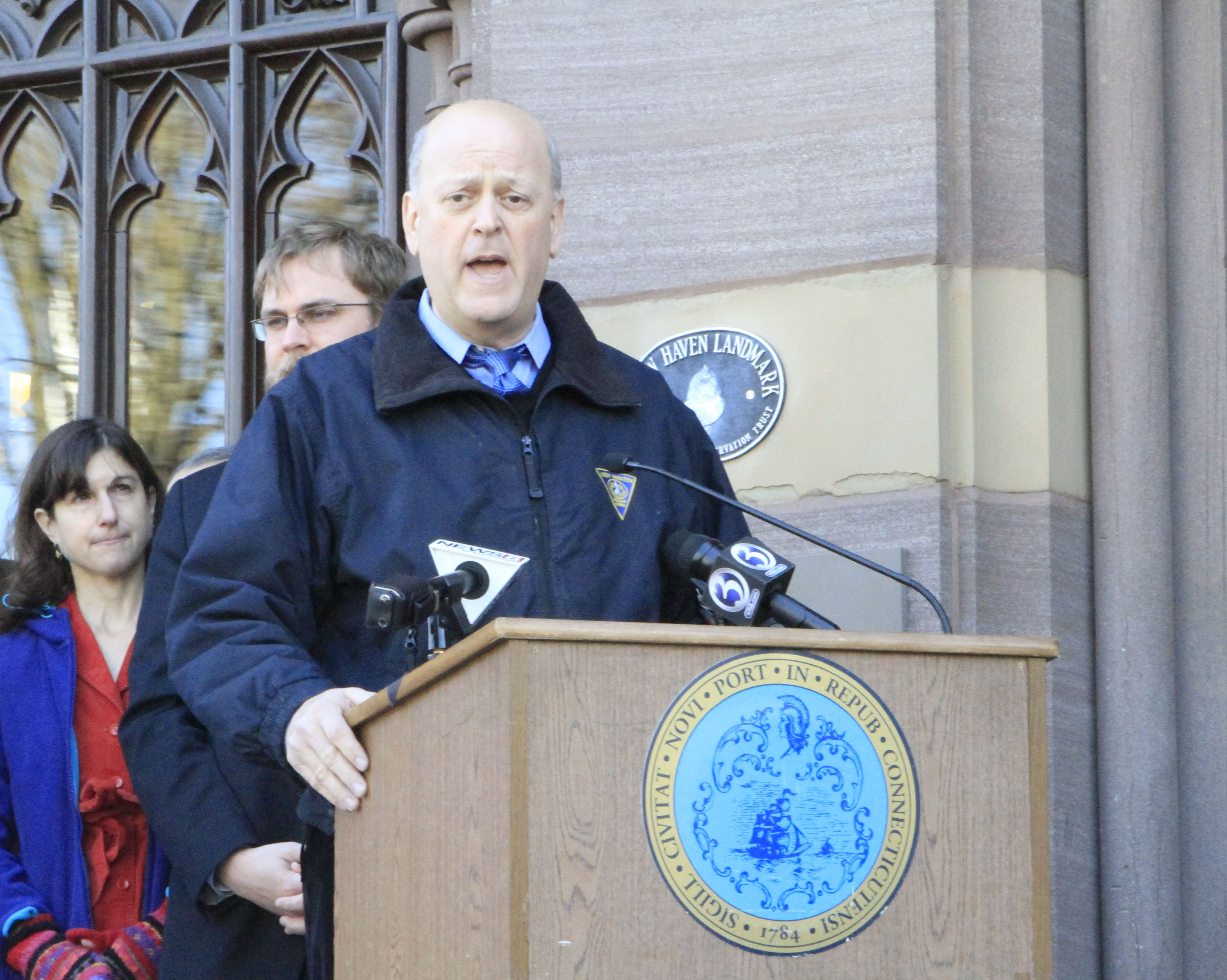
Around 15 refugees were taught how to avoid scams, report crimes in their native languages and navigate interactions with law enforcement during a Thursday seminar with New Haven Police Department spokesman David Hartman.
The refugees were clients from Integrated Refugee and Immigrant Services — a New Haven program that resettles refugees and other displaced people — who attended the meeting as part of a monthly wellness program, according to IRIS social worker Amanda Bisset, who organizes the program.
Though Thursday’s meeting was intended to be a crash course in safety, the United States’ laws and law enforcement, it also aimed to build trust between refugees and the police.
“For us as a police department to go to these groups and talk to them about their safety has a selfish element, but it’s a good one,” Hartman said. “We want people to interact with us. We don’t want them to wait until something bad has happened.”
Bisset said it is important for refugees to be comfortable interacting with law enforcement and to know what their rights are. She noted that many IRIS clients are from countries with high rates of corruption and where the police and government are not trusted.
Bisset said some of her clients voiced concerns that they could be targeted or distrusted by law enforcement because they are from a different country.
“Officer Hartman did a great job of reinforcing the idea that they should all be treated equally by law enforcement,” she said.
Hartman said NHPD does not check the immigration status of people they interact with unless it is relevant, such as if individuals were victims of a hate crime.
He said refugees are more likely to fall victim to certain crimes, including robberies, because people assume refugees cannot open bank accounts and will be carrying large amounts of cash on their person. He added that refugees are also at heightened risk of being victims of phone scams. Some companies exploit refugees who do not know about American customs by asking them to share sensitive information such as debit card numbers or visa numbers over the phone.
Often, Hartman said, all it takes for someone to be preyed upon by a criminal is having a foreign accent. He stressed to the refugees that it is important for them to report crimes because this prevents others from becoming victims of the same perpetrator.
“We have to make sure that people aren’t discouraged from reporting crime because of a language barrier,” Hartman said.
Hartman told clients at the meeting that NHPD is capable of handling 911 calls in languages other than English. In addition to potential translators at Yale or the New York Police Department language bank, Hartman said there are officers at NHPD who speak Spanish, French, Hindi and Punjab, among other languages.
Adam Echelman ’17, the president of Yale Refugee Project — which matches Yale student mentors with refugees between the ages of 15 and 28 — said it is harder for refugees to learn English and overcome these language barriers when they are over the age of 18 because they cannot enroll in traditional schooling. In adult education courses, Echelman said it is harder to make friends to practice English with outside the classroom.
“High school is a really great place to practice English, but it’s also a great way to make American friends,” Echelman said. “If you’re enrolled in an adult education course, it’s not the same.”
Bisset said though many of these topics are covered in Thursday’s meeting is taught to refugees when they first reach the United States, Thursday’s meeting was a helpful follow-up.
She added that the topics IRIS’ program focuses on each month are based on clients’ needs.
“Any information that we can provide to our clients as their adjusting to this new country is empowering to them,” Bisset said. “It was a wonderful event.”
IRIS changed its name from Interfaith Refugee Ministry to IRIS in 2007.







